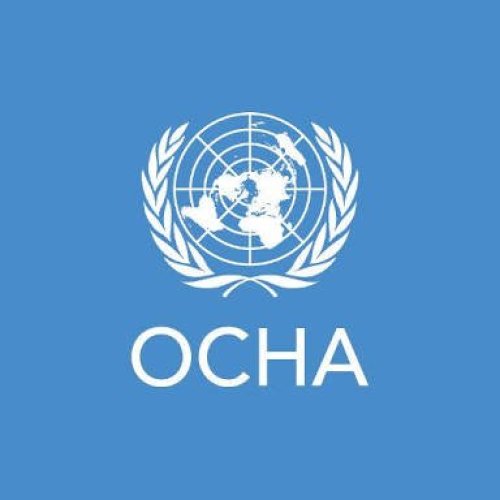In Nigeria, just like in many other countries of Africa, socio-economic development is often impeded by the occurrence of natural and human-induced disasters. These disasters have been more frequent in recent times. The main hazards encountered in Nigeria are frequent oil spills, industrial pollution, rapid population growth, urbanization, high incidence of poverty, strong ethnic plurality, deteriorating livelihoods, perceived or real social marginalization, crime and general insecurity, and heightened social and political tensions, just to mention a few. These humanitarian crises are caused by emergencies such as wars, terrorism and remain long after the war is over.

The country is in need of more professionally trained and competent personnel to handle these humanitarian issues. It is in a bid to develop our own self-sustaining capacity for
responding to humanitarian needs in Africa that professional humanitarian courses are made available. This article lists out professional courses in Nigeria, requirements for admission, where you can find these courses and other information you will need.
Humanitarian and Disaster Risk Management Unit
(MHRS) Professional Master Degree Programme in Humanitarian and Refugee Studies
The MHRS Degree is meant to provide knowledge and skills to meet needs in current Africa’s human security status in the area of armed conflict, humanitarian crises and intervention, and refugee management and also to work out preventive measures aimed at crisis prevention and resolution.
Target Beneficiaries
Master Degree Programme in Humanitarian and Refugee Studies (MHRS) is specially
tailored to meet the professional needs of individuals, groups, and agencies actively involved in
humanitarian work and conflict management. These include:
- Armed forces personnel
- Government and policymakers
- International humanitarian agencies
- Local and international NGOs
- Scholars and researchers
- Media executives
- Human rights activists.
Admission Requirements for Professional Master Degree Programme in Humanitarian and Refugee Studies
Candidates seeking admission into the programme must have obtained at least an
Honours degree in the fields related to humanitarian studies such as the humanities, social sciences, science, law from any Nigerian accredited University.
Candidates already working jobs related to refugee and humanitarian activities in organizations, agencies, state ministries or industries are usually given much preference.
Candidates must satisfy the undergraduate entry-level requirement into any Nigerian university which is five O’ level credit passes to include English language obtained in not less than two sittings.
Disaster Risk Management (DRM)
Professional Master Degree Programme (Disaster Risk Management)
This programme leads to the award of Professional Master in Disaster Risk Management
Eligibility
The Programme is tailored for people interested or currently working in the fields of Disaster Volunteers services, risk and emergency management in either the public or private sector, such as:
Agricultural officials
Building inspectors
Communication officials
Federal/state disaster and emergency managers
Fire service officials
Health officials
Insurance assessors
Local government officials
Park service specialists
Park service superintendents
Armed security officers
Structural engineers
Traffic personnel
Town planners
Veterinary officers
Media personnel
Admission Requirements for Professional Master in Disaster Risk Management
The following are eligible for admission to Professional Master in Disaster Risk Management:
- Graduates of any accredited Nigerian university and higher institutions
- Graduates who possess a good Honours degree in the social sciences, Public Health and related disciplines, Agriculture and Forestry, Veterinary Medicine, Environmental Science, Town Planning, Science and Engineering
- Candidates who possess other equivalent professional qualifications such as HND, etc. with a minimum of Lower Credit
- Candidates with work experience, especially in disaster risk management, in public or private sector are given preference
- All candidates must meet the undergraduate entry-level requirement into any Nigerian university which is 5 O’ level credit passes to include English language obtained in not less than two sittings.
-
Master of Science Degree in Peace and Conflict Studies
Entry Requirements
- Candidates must have a degree with a minimum of a second class lower in any field in the Arts or social sciences. These could include any of the following courses: Sociology, Political Science, History, Law and Public Administration from any accredited Nigerian university
- Candidates must have obtained a minimum of five O’ level credit passes to include English language and Mathematics in relevant subjects at SSCE/GCE or their equivalents.
The courses offered under this programme have an interdisciplinary focus and the areas of specializations available are:
- Peace and Conflict Studies (International Conflict and Management)
- Peace and Conflict Studies (Internal Conflict and Management)
- Peace and Conflict Studies (Gender-Based Violence)
- Peace and Conflict Studies (Human Security)
Masters in Peace Building and Development Studies (MPBD)
Entry Requirements
- Candidates must have a degree with a minimum of a second class lower in any field in the Arts or social sciences. These could include any of the following courses: Sociology, Political Science, History, Law and Public Administration from an accredited Nigerian university
- Candidates must have obtained a minimum of five O’ level credit passes to include English language and Mathematics and other relevant subjects at SSCE/GCE or their equivalents.
- Candidate with third class degree and who have a Postgraduate Diploma in the Arts and Social Sciences may be considered for admission.
MA Peace and Security Studies
Admission requirements
- Candidates in any field with a minimum of second class lower
- Candidates must have obtained a minimum of five O’ level credit passes in relevant subjects at SSCE/GCE or their equivalents. These credit passes must include: English Language and Mathematics
- In some institutions, experience in Security sector management is compulsory.
All candidates for the Ph. D programmes are expected to have scored a minimum of 60% in their Master’s degrees in Peace and Conflict Studies from any recognized University.
Humanitarian Courses: Where you can study in Nigeria
University of Ibadan’s Peace and Conflict Studies Programme
Cnetre for Peace, Diplomatic and Development Studies, University of Maiduguri
University of Ilorin’s Centre for Peace and Strategic Studies
University of Jos’ Centre for Conflict Management and Peace Studies
Afe Babalola University’s Peace and Conflict Studies Programmes
University of Port Harcourt’s Centre for Conflict and Gender Studies